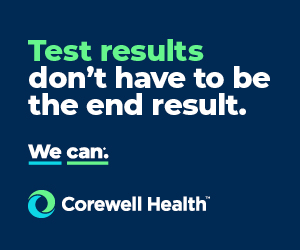AdvocacyThe MOA is the voice of the osteopathic profession, standing up to the state legislature and administrative agencies on issues that affect how you deliver health care. The MOA works hard to ensure an osteopathic presence in developing Michigan’s health care policy. Scope of Practice Legislation
Safe Opioid Use Task Force In 2014, the Michigan Osteopathic Association (MOA) created an Ad Hoc committee to investigate the causes of the alarming rates of opioid abuse in Michigan. The committee was quickly evolved into the MOA Task Force on Safe Opioid Use. The Task Force meets regularly to monitor changes in the issues related to the opioid crisis. The chair of the Task Force, Dr. Stephen Bell, served on Governor Rick Snyder's Michigan Prescription Drug and Opioid Abuse Task Force representing the osteopathic perspective and providing recommendations on reducing prescriptions and addressing and treating the causes of addiction. In 2016, the Task Force hosted a “Town Hall on Combatting the Opioid Mortality Crisis,” that featured physicians, lawmakers, judges and law enforcement. The standing room only event included a panel discussion, taking questions and comments from attendees at the Spring Scientific Convention. The MOA Task Force continues to work to educate members, legislators, law enforcement and the public on the prevention and treatment of opioid addiction. The Task Force also works with the Department of Licensing and Regulatory Affairs (LARA), providing input on regulatory language, FAQ’s and information on Medication-Assisted Treatment (MAT). The Task Force collaborated with the Michigan Academy of Family Physicians (MAFP) to survey members on the revised laws regarding opioid prescriptions and their feedback on the new Appriss/MAPS system as they applied the system to day-to-day practices. The MOA Task Force on Safe Opioid Use connects membership to:
The MOA also participates in collaborative groups, working with other medical associations in fighting the opioid crisis.
In 2019 the MOA Task Force continues to work closely with the MOA Education Committee to create and provide education on opioid prescribing, pain management and addiction treatment. The MOA has provided opioid educational sessions at both the Spring and Autumn conventions since 2015. The programs have been approved for AOA Category 1-A CME credits. The programs also fulfill the LARA licensing requirements for pain & symptom management. Resources & updates at DOMOA.ORG/opioids
Vaccinations
MOA is involved with both the Parent Information Network (PIN) and Adult Immunization Stakeholder group led by MDHHS to help Michigan parents protect their children and promote a healthy society.
Results of the MOA’s Vaccine and Immunization Advocacy Efforts have been overwhelming: In 2015, the state of Michigan saw 8,000 fewer requests for vaccination waivers and saw on average a 35.425% decrease in waivers across all youth demographics.
Education of physicians and healthcare partners through TRIAD magazine, Pulse newsletter and website.
Resources & updates at DOMOA.ORG/vaccinations Fighting Human Trafficking As part of the effort to stop human trafficking, the Department of Licensing and Regulatory Affairs (LARA) has added licensing requirements to the “OSTEOPATHIC MEDICINE AND SURGERY - GENERAL RULES.”
MOA has and will continue to provide educational sessions to recognize victims of human trafficking.
Resources and updates at DOMOA.ORG/stophumantrafficking Physician Wellness
The MOA is committed to the issues surrounding Physician Wellness with programs being developed.
The MOA Annual Conventions feature a “Physician Wellness Center,” since 2017. Throughout convention, the space is used for OMM treatment, yoga classes, breathing meditation and a haven to relax and rejuvenate in between the busy schedule of sessions.
TRIAD Summer 2017 Edition entitled, “Physician Wellness: Finding a Balance between Patient Care & Self Care,” featured advice, research and what DOs are doing to combat this crisis within the profession. Distributed through email, also highlighted in the Pulse newsletter and social media. To access this issue, visit DOMOA.ORG/triad Mini Medical School MOA partners with DO’s and organizations to teach K-12 students about health, vaccinations and how to prepare for a career in medicine in a fun, hands-on experience. Volunteers use props like a human skeleton and organ vests, and the older students are included in a discussion on opportunities at the Michigan State University College of Osteopathic Medicine (MSUCOM), including the OsteoChamps and Future Docs programs.
|

